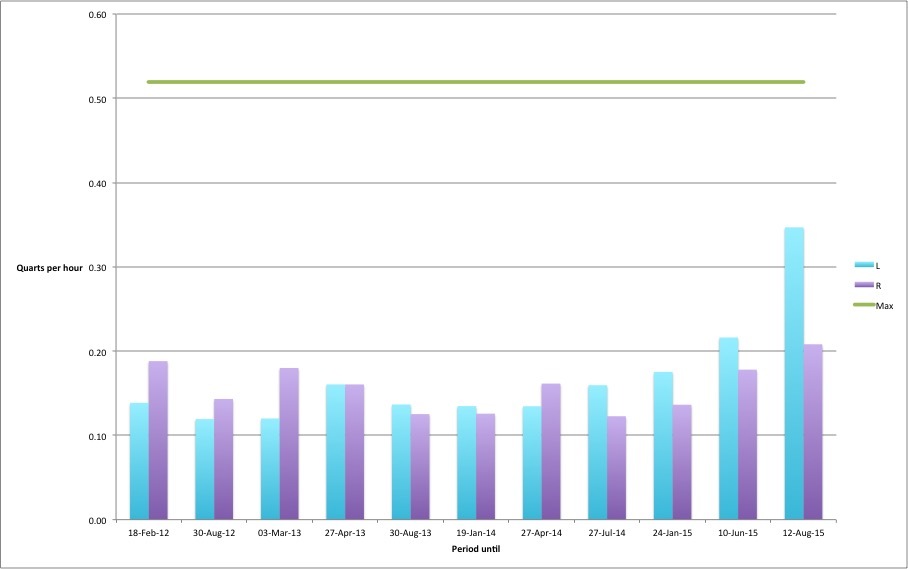Peter wrote:
I might investigate getting an oil separator – any experience of these? Some people are very disapproving of them, saying that dumping dirty oil overboard is a good thing…
The first step is to establish where your oil goes. Until you do that, it’s just guesswork.
If your belly is really oily now more so than before the high oil consumption started, then you should check to see what your crank case pressure is. Your compressions are great so I dont think it is blowby. The spark plugs are not oily except the last one looks a bit sooty. However I think it is not too bad compared to mine. Unless you changed the length of the crankcase breather line or moved it I dont think its that.
Michael hasnt commented so I think he went to stay at a Holliday Inn. We will have to wait for him to come back to us with some input.
Oil mist going out through the breather line is well known as an oil loss factor. Air / oil separators have caused early top overhauls on many Acclaims as that specific installatiion pressurised the crank case. In modern auto engines (eg since ca 6 ;0ish years) this is dealt with by means of a PCV valve.
Your low pressure comment apparently applies to certain homebuilts, where they didn’t check this out properly.
For a real Experinental, as with a production prototype I’d imagine, oil breather placement as with cooling is a matter of experience and experimentation as well as ‘proper’ procedure and calculation.
In my area a lot of people do engine swaps, stuff like putting an O-360 (either manufacturer) in a Globe Swift, or a Lycoming in a Cessna 120. It’s sometimes amazing how much work is necessary to get air and oil temps, pressures and flows where they need to be, and how subtle changes make a big difference. It’s not really practical to plug it into your handy-dandy laptop based Ansys CFD program and come up with the perfect setup before the first flight.
This is the feedback I’ve had from one respected US engine shop, on oil separators:
I am doing one more high power flight tomorrow, and the following day will see how much it is burning now.
I would not worry too much about an oil consumption of 0.33 l/hour. That is very well within the limits.
The absolute consumption is not worrying (only pointing to how substandard our 1940s US engines are). However, the sudden increase in oil consumption is more than enough reason to thoroughly investigate.
achimha wrote:
The absolute consumption is not worrying (only pointing to how substandard our 1940s US engines are). However, the sudden increase in oil consumption is more than enough reason to thoroughly investigate.
I concur. I’ve attached an oil consumption chart from a pair of IO-320s. The green line is the theoretical limit according to the Lycoming formula. It will be higher for more powerful engines and/or for those with more cylinders. I calculate average oil consumption periodically. I certainly do not do it perfectly, but I do trust the trend.
Note the trend on the left engine over almost a two year period. Soon after the last datapoint (which was only 6 weeks ago), oil consumption went catastrophic – more than 1qt/hr. I grounded the aircraft and had all the pots pulled. The cause was one oil control ring completely stuck in its groove.
A reasonable solution could have been to have cleaned everything up, glaze-busted the cylinders, and fitted new rings. However, at 1300hrs since overhaul, the pistons, valves, and guides were all a bit tired. Both my engineer and I independently reached the conclusion that we should do a top overhaul, which has been done and the break in process is under way.

Great data, @Alan_South
Thanks for posting that.
Did you also have
I’ve done a couple of 1hr flights like this

and will know tomorrow (3rd one tomorrow) if it makes any difference.
If not I will be looking for a reputable company based at some airport which can pull two cylinders.
Realy realy intresting thread. Now a do a oil consumption log! I can´t resist, my sparke plugs always look like this, I only do high power flights :-)